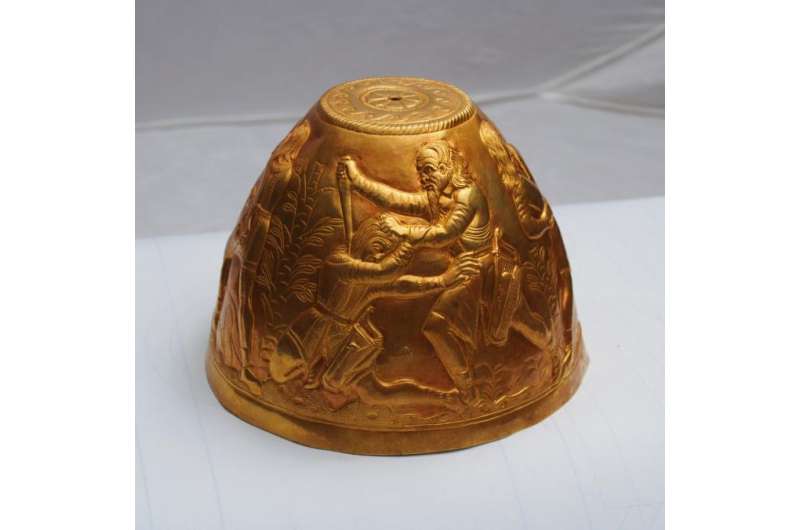Credit: Andrei Belinsky/National Geographic
A team of archeologists led by Anton Gass of the Prussian Cultural Heritage Foundation has unearthed a small trove of gold objects left behind by a people known as the Scythians, a group of fierce nomads that thrived for over a thousand years in the environs of what is now southern Russia.
The Scythians are believed to have been a warring people, occupying the steppes of central Eurasia from the ninth century BC to the fourth century AD—but they did not leave behind much evidence of their existence, much less their history—they built no cities and kept on the move. They did however, create grave mounds called kurgans (Slavic for tumulus, or a particular type of grave where a mound of dirt is heaped over a chamber). One particular kurgan stood in the path of a power line construction, which caused utility officials to contact Gass to investigate. He brought a team to the site expecting to find nothing but dirt, clay and sand—it had been combed over by looters many times already.
But, as it turns out the looters had missed something—deep inside a layer of clay was a chamber lined with stone, inside of which lay artifacts made of gold: two vessels shaped like buckets sitting upside down. Inside the buckets were three gold cups, a finger ring, a gold bracelet and two neck rings—taken together the find adds up to seven pounds of riches.
In speaking with the press, the researchers described how the vessels had intricate inscriptions on them, one depicting an elderly man slaying a younger man, and another showing griffons killing a stag and a horse. Both are so well done that the researchers were able to make out details such as hair styles, clothing types, etc. They reported also that they had found sticky dark residue on the insides of the vessels, which after analysis turned out to contain both cannabis and opium. The researchers believe the opium was used in a tea of sorts and consumed, while the cannabis was smoked. The find corresponds to the writing of Greek historian Herodotus, who described occasions where the Scythians burned a plant to produce a smoke that made them shout out loud.
More information: via National Geographic
© 2015 Phys.org






















